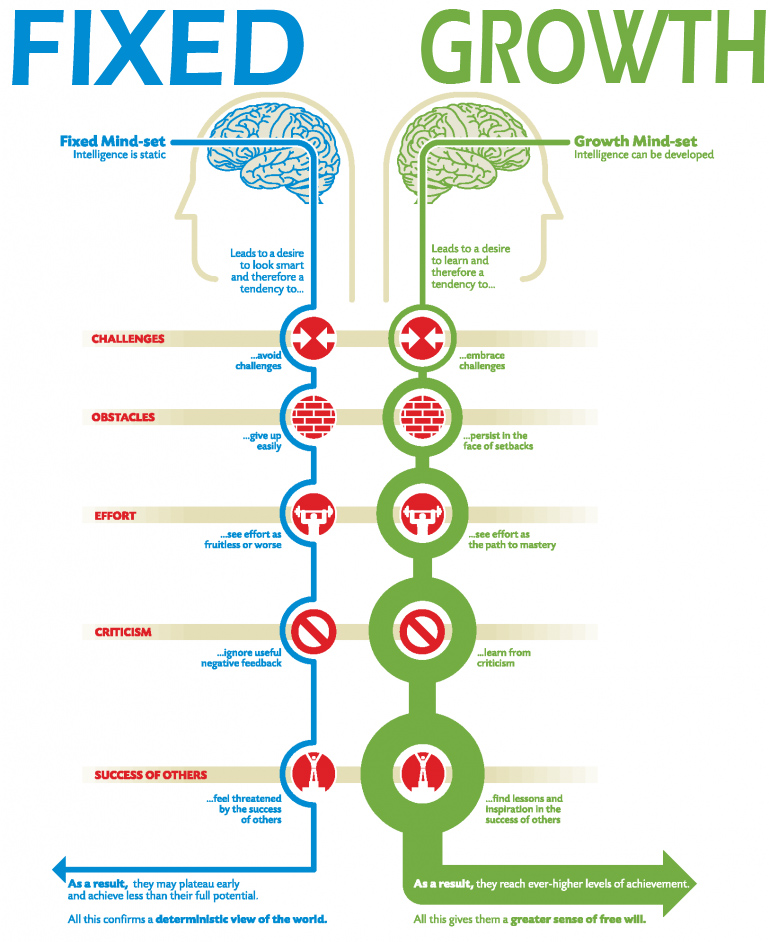By: Jeff Simmons
Are you of a fixed mindset or a growth mindset? Don’t know the difference? “Mindset” is a term you may hear a lot, lately. For a great read on this topic, check out Carol Dweck’s work, Mindset: The New Psychology of Success.
A very short summary of the two concepts is this –
Those with a fixed mindset believe their abilities and their environment are limiting. The only way to show value is to measure myself against others and find some way in which my individual success is greater than another, or to discolor the success of another to make myself look greater. For an individual with a fixed mindset, success is determined by their perceived value of the end product of their work. For a fixed mindset, the journey is less important than the destination.
Those with a growth mindset believe their abilities are always evolving, and that their environment may change but cannot determine their success. An individual with a growth mindset may compare themselves to others, but not to determine value. In a growth mindset, success is found in the journey. I learn, I grow, I improve, and I find value in that achievement, even if the perceived value of the end product of my work is less than the perceived value of the end product of another individual’s work. For a growth mindset, the journey can be more important than the destination.
Below is an image that does an excellent job of differentiating the two mindsets:

How should the concept of mindset apply within our classrooms? Whether face-to-face, blended, or online, students need to understand and embrace the concept of a growth mindset. Learning is about the journey. If the focus is on the destination, learning can become a difficult, frustrating, and sometimes defeating experience.
As educators, helping students love to learn and helping students learn how to learn well is just as important, if not more important, than the content we teach. Students need to learn to become lifelong learners. They need to learn they can continue to grow throughout their lives. They need to learn they are capable of learning new things, growing to meet new challenges, and are equipped with the skills they need to succeed in life. The challenge to us is to embrace a growth mindset of our own, and then infect our students with it. If we can meet this challenge, we set up each student with the ability to meet their full potential, which should be the goal of every educator for each of their students.
Embrace growth. Empower change.



